
14th July 1926. ‘The Child in the Servantless Home’
‘It is impossible to manage a home and children singlehanded without good health. The working mother should, for her own sake, do all she can to preserve her health, and often a few hours’ rest in bed will prevent serious trouble. It is sheer folly when overtired or unwell to go blindly on with the daily programme, exclaiming that you cannot be spared. Better “be spared” for twenty-four hours than for a fortnight! A periodical day in bed would relieve most of the troubles that many working mothers seem to accept as inevitable…
‘Picnic meals of brown bread and butter, fruit and milk, will do the children no harm, and need involve no fuss whatever, while the morning sleep should, of course, take place at the accustomed time. Usually the father or some elder member of the family can arrange to return in time to bath toddlers and put them to bed, and this can be a real treat for all concerned!’
17th May 1939. ‘First things First – but what are the first things? Asks a Single-Handed Mother’
‘To “keep one’s husband always one’s lover” makes for a happy home-life for children as well as parents. Isn’t it one of Mother’s essential jobs so to arrange all her work so she is not too tired to be charming and companionable and to care a little for her own looks? Children, as well as father, love a “lovely” mother! (I find a weekly Health and Beauty Class a sure defence against middle-aged spread, and it is also a good evening’s relaxation!)
‘Now, single-handed mothers, let us all keep a good sense of proportion and not be over-conscientious about the myriad secondary duties, but find time to be happy and so make happy homes for our families.’
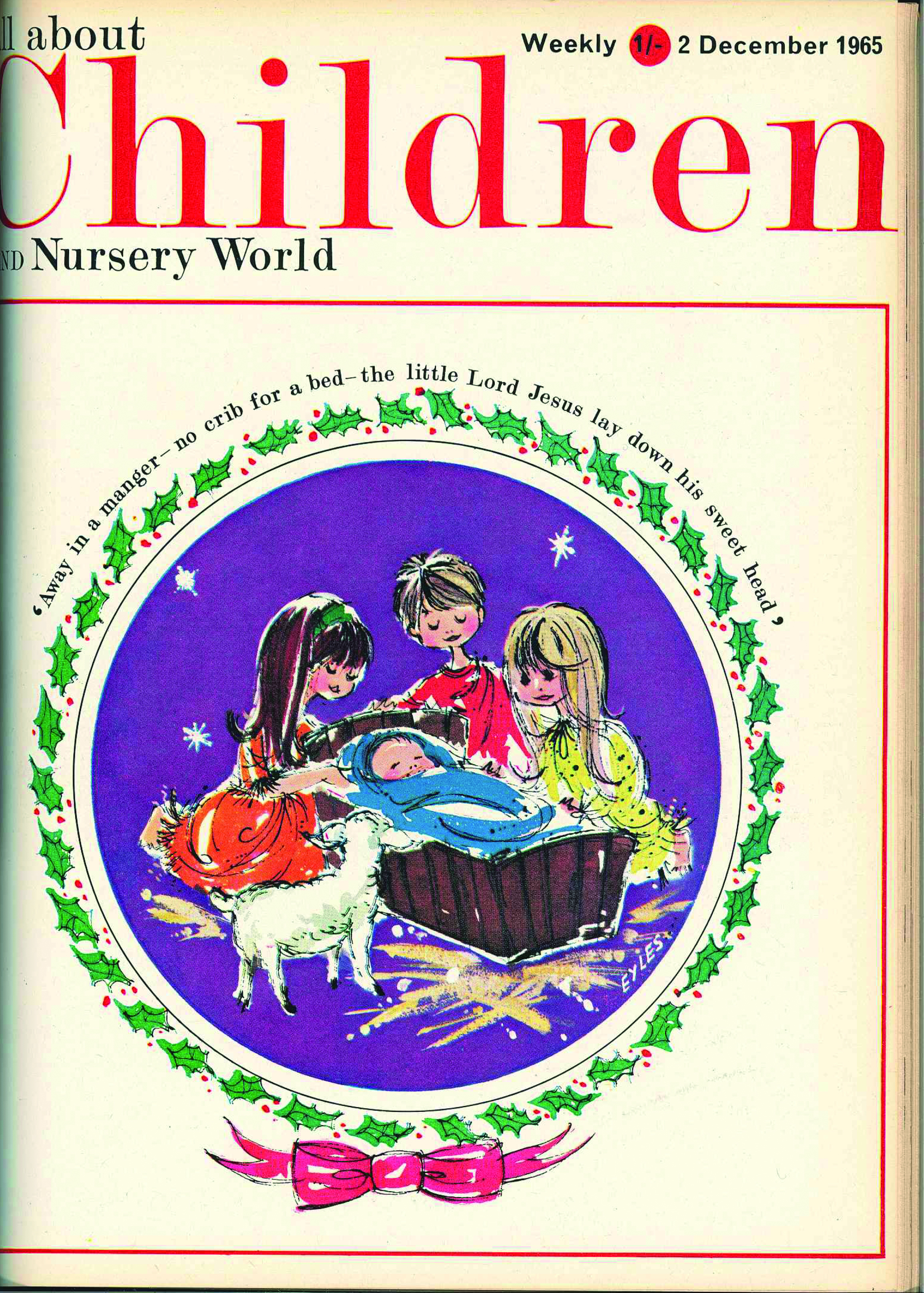
7th October 1943. ‘Our responsibility’
‘Miss Janet Dunbar…will speak in the new “Woman’s Page” programme to be broadcast by the BBC on Fridays at 6.30. You may remember her recent talks on the Beveridge Report [a report which was highly influential in the founding of the post-war welfare state]. Miss Dunbar has strong views about the part women should play in local government and about the housewife’s way of saying “they” do so-and-so or won’t do so-and-so without realising that “they” is really “we” and that it is up to us to make the better Britain we all want when this war is won.’
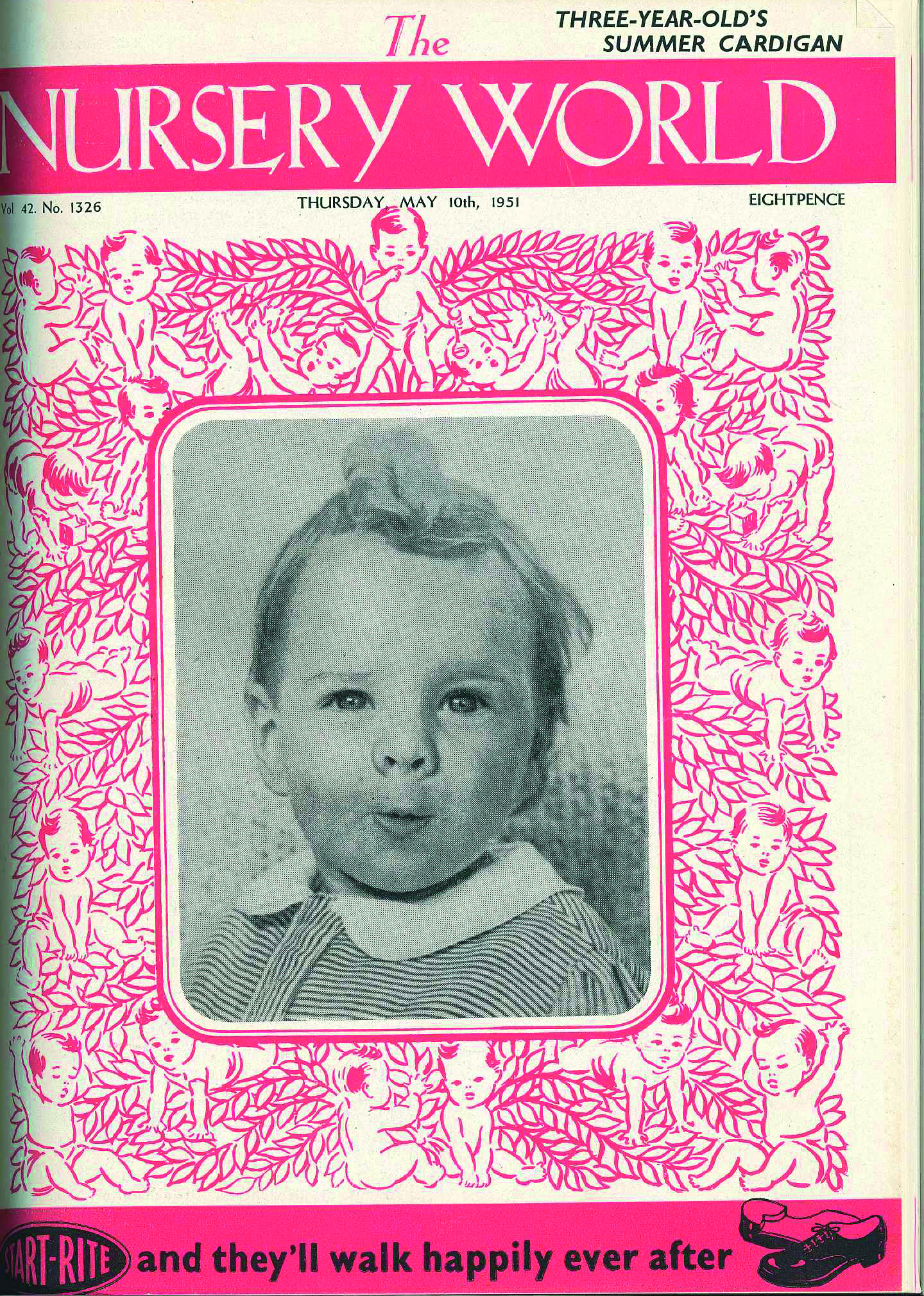
10th May 1951. ‘Unmarried mothers and their children’
‘A number of Acts to improve the life of children have been passed since 1918, and the [National Council for the Unmarried Mother and her Child, founded in 1918] has had a good deal of influence on them. Neville Chamberlain sponsored its first Bill, which advocated the legitimation of children whose parents subsequently marry… Though to the disappointment of some, a child still cannot become legitimate if one of the partners w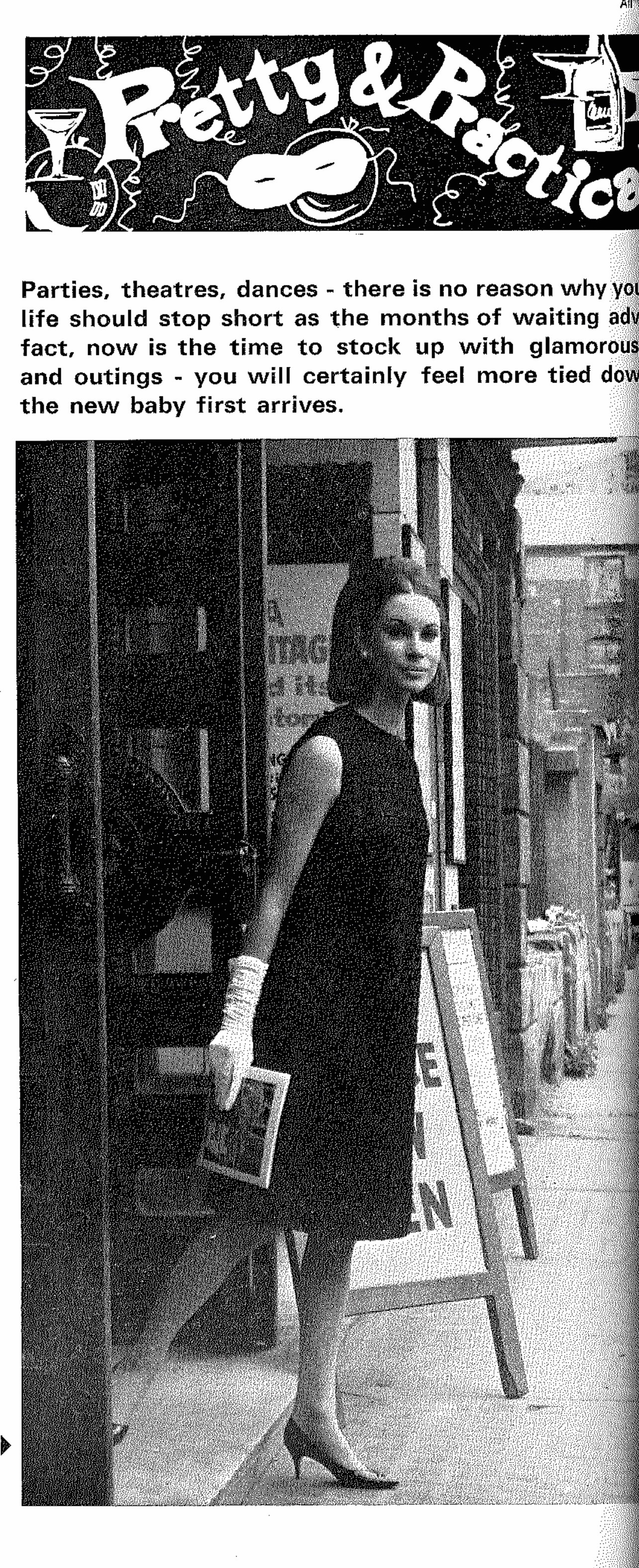 as married to somebody else at the time of the birth.’
as married to somebody else at the time of the birth.’
2nd December 1965. ‘Pretty & Practical’
‘Parties, theatres, dances, there is no reason why your social life should stop short as the months of waiting advance. In fact, now is the time to stock up on the glamorous “do’s” and outings – you will certainly feel more tied down when the first baby arrives…
‘The old absurdity of trying to hide the bulge, followed by elaborate devices to attract attention away from the bulge, no longer apply, thank goodness – no one tries to “keep the secret” any more. Now in fact you can get away with being really dramatic. You can exploit the precious and unique feeling of poise and confidence, of purposefulness, that is one of the subtlest delights of pregnancy.’
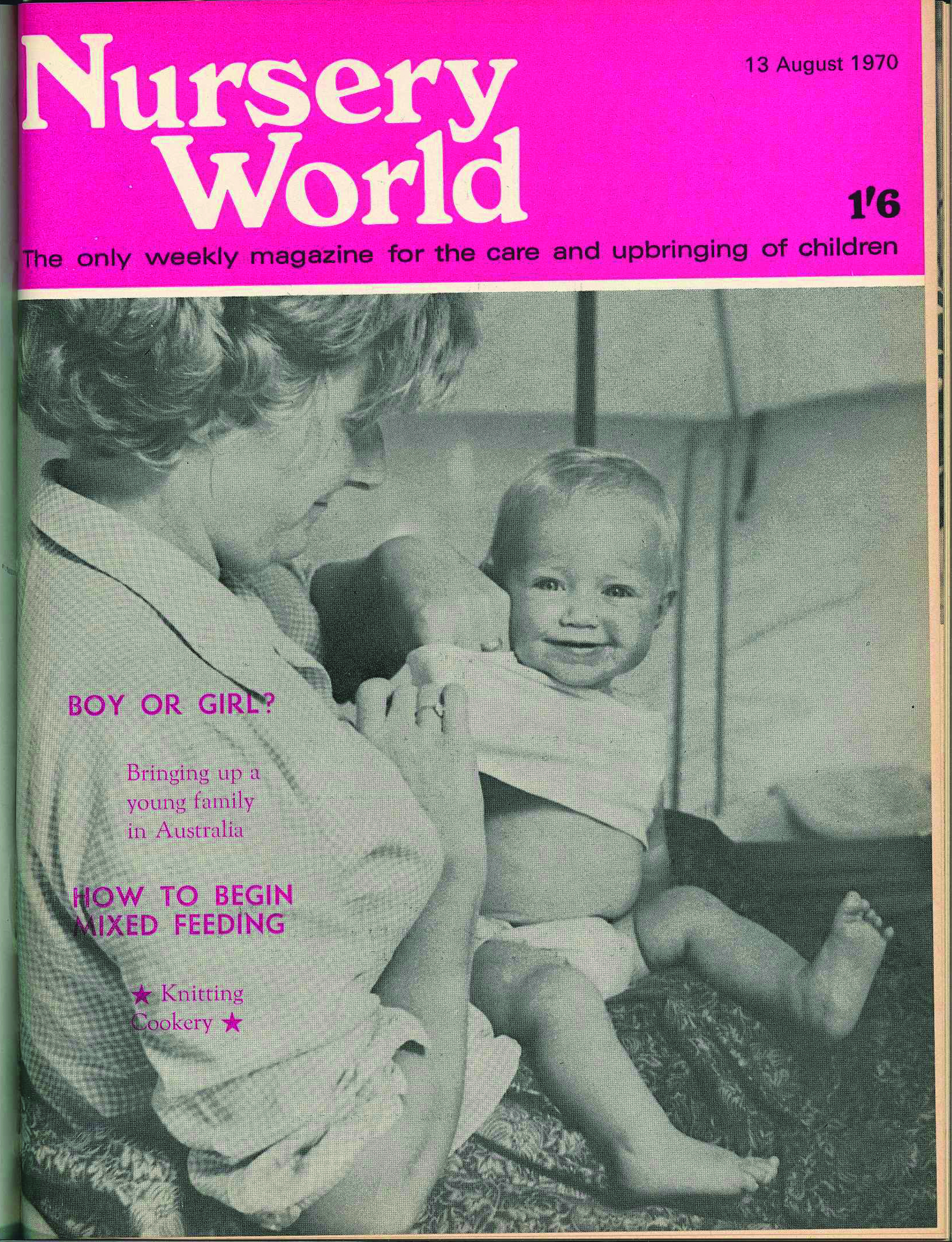
13th August 1970
‘It’s young sons who stamp the hardest, shout the loudest, when they are crossed. Little boys are more of a challenge, little girls more of a delight. Because they are so different, physically, mentally and psychologically, they need bringing up differently. Upbringing colours a child’s whole outlook, makes him satisfied or discontented to be what he is. It is especially important to treat a girl as a girl in a one-sided family with several brothers, and a boy with only sisters as a boy. A tomboyish girl may get by, but it is unfortunate to be a mannish woman, or a timid, feminine man.’
9th February 1989. Race awareness training
‘The biggest difficulty in tackling racist attitudes and racist practice is that they are not just individual problems but are woven into the fabric of our lives. From the largest institutions to the smallest, we can expect to find that “white Anglo-Saxon Protestants” have the best chance of getting to the top and that there are a disproportionate number of people from ethnic minorities in the most boring, worst paid jobs. At its most vicious, racism can mean being terrified to go to bed at night in case someone puts a firebomb through your letterbox – a regular event in some areas, like Newham in east London. At its most subtle, racism may mean people making ill-informed negative assumptions about cultures other than their own. Changing attitudes is a small step in the right direction, but this is only one aspect of what has to be achieved if we are to give pre-school children the confidence and understanding they will need to deal with racism on their own behalf as they grow up.’
21st May 1992. ‘An equal right to parenting’
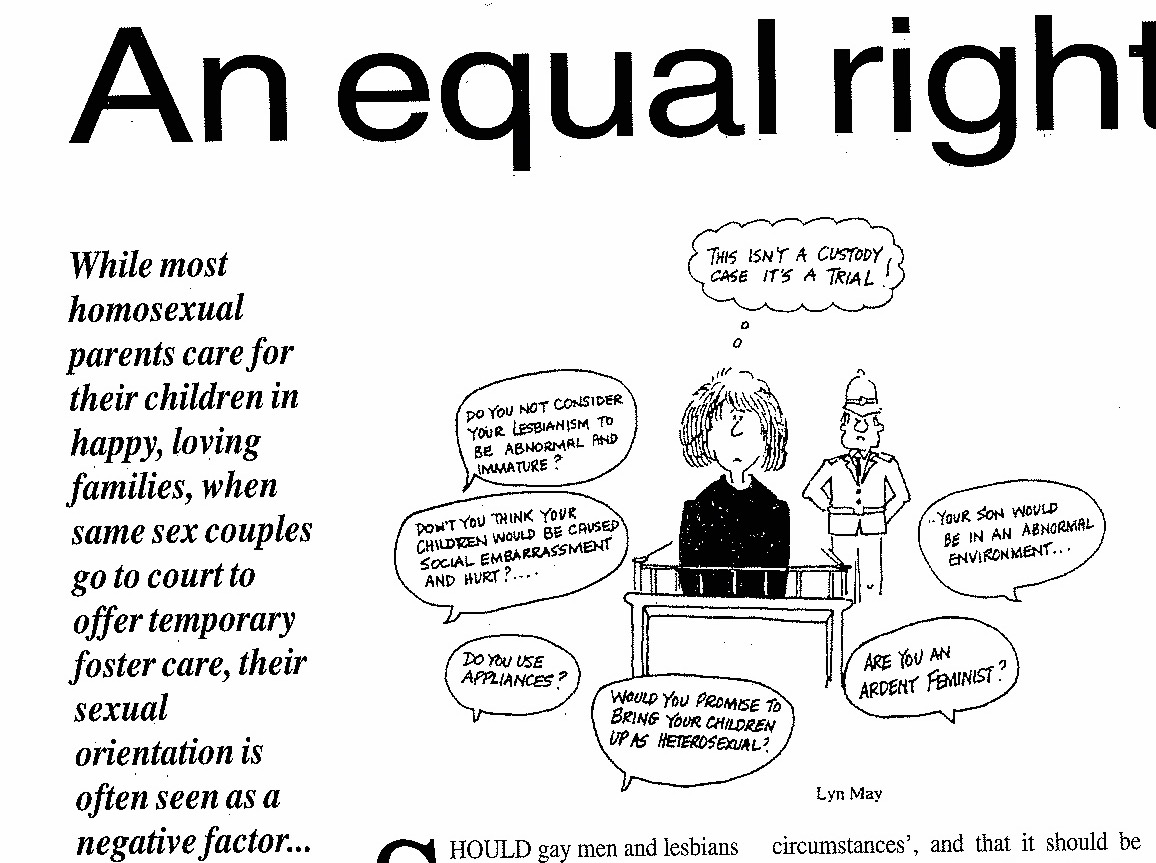
‘The previous restrictions on single men or unmarried couples fostering were relaxed in the early 1980s. Then, in the consultations about the new 1989 Children Act, the guidance and regulations on family placement seemed to rule out gays and lesbians on the grounds that “equal rights” and “gay rights” have no place in fostering services.’ [Following a massive response, the wording of the act was redrawn to claim that ‘it would be wrong arbitrarily to exclude any particular groups from consideration’.]
7 November 2002. ‘Suffering in silence’
‘Iris Gibbs, a parent-child psychologist at the Anna Freud Centre… says “Society idealises childbirth and motherhood, and this puts women under pressure when their experience does not match their expectations. Many women suffer from the baby blues, but often the expectation among family and friends is that it will pass. When it doesn’t, a mother may feel even more overwhelmed by her feelings. Proper help and support is needed to help these women and the families that are affected.”’









